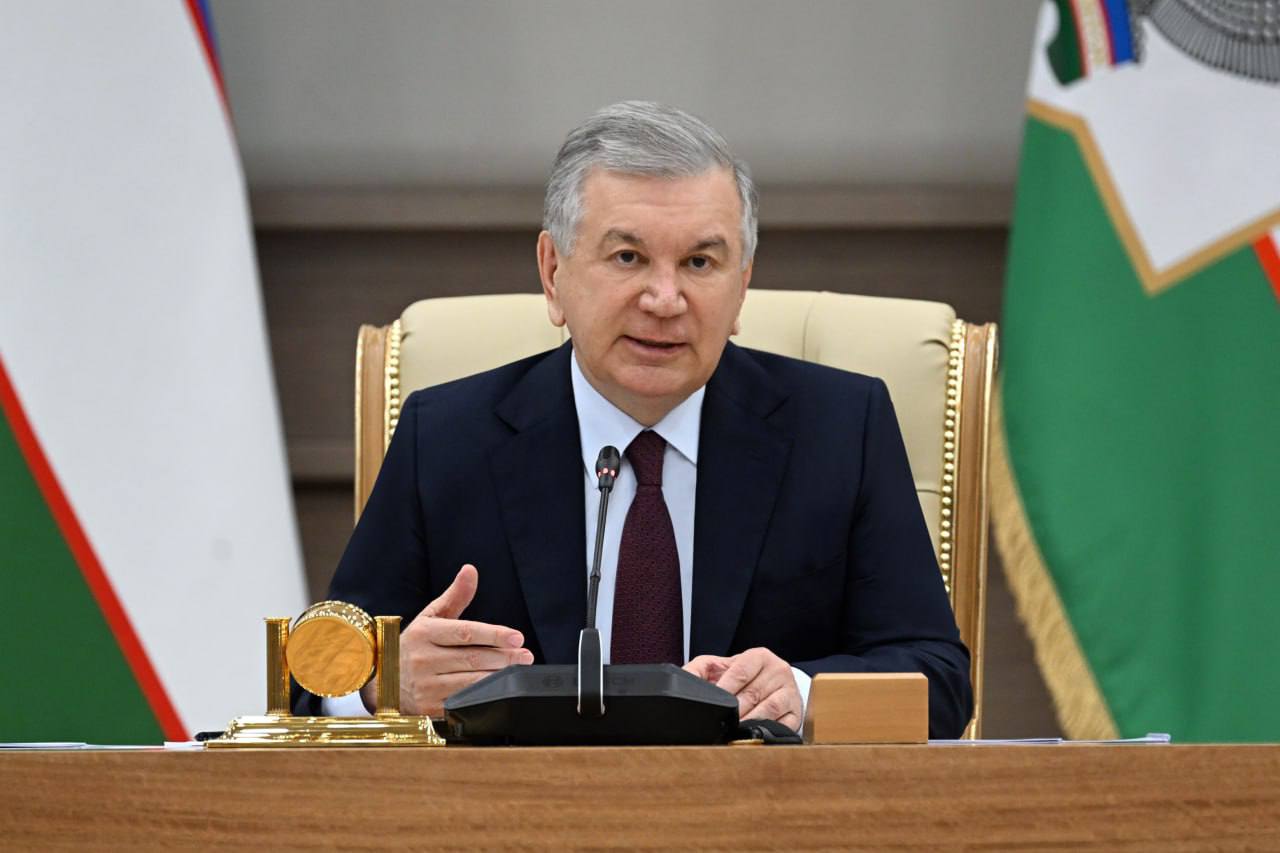On May 15, 2025, under the leadership of President Shavkat Mirziyoyev, a video conference meeting was held to discuss priority tasks for further enhancing the effectiveness of reforms in the school education system.
16.05.2025

The development of any society is closely tied, first and foremost, to the reforms being implemented in the education system. Education is not merely a means of transmitting knowledge—it is a critical institution that prepares individuals for life and guides them toward a worthy place in society.
On May 15, 2025, under the leadership of President Shavkat Mirziyoyev, a video conference meeting was held to discuss priority tasks for further enhancing the effectiveness of reforms in the school education system.
“There is a universally acknowledged truth: the development of any state depends on a healthy and educated generation,” the President stated in his opening remarks. “Therefore, on the path to building a New Uzbekistan, we must create every condition to raise healthy, educated, intellectual, and patriotic youth.”
In recent years, Uzbekistan has undertaken comprehensive education reforms. The following directions have become priorities:
1. Curriculum Renewal and Modernization
Education content is being adapted to modern demands, with increased use of scientific, innovative approaches and information technologies.
2. Teacher Professional Development
The quality of education largely depends on teacher potential. Retraining and upskilling programs are being widely introduced for teachers.
3. Modern Infrastructure
Modern material and technical bases are being developed in schools and universities, including the implementation of digital learning platforms.
4. Equal Access to Education
Creating equal opportunities for all children reflects the principles of social justice and human rights.
5. Adopting Global Best Practices
Efforts continue to study and implement global educational practices to enhance overall quality.
It was highlighted during the meeting that in the past seven years, funding for preschool and school education has increased sevenfold, with 60 trillion soums allocated this year. Around 1 million new seats have been created in schools, and 1.5 million in kindergartens.
Salaries for kindergarten teachers have risen by 65%, reaching parity with those of school teachers. Starting from the new academic year, the salaries of school principals, their deputies, and heads of kindergartens will exceed 7–10 million soums.
Education programs are being aligned with international standards, textbooks are being updated, and modern equipment is being supplied to schools. Teachers are now expected to master new methodologies and provide students with high-quality knowledge. To support this, the quality of teacher training at higher education institutions must also be improved.
Another issue raised was the importance of vocational training for youth, their proper upbringing, and protection from harmful influences.
Teacher Training Reforms
Significant attention has been given to the system of teacher training and certification:
-
The Abdulla Avloni National Research Institute and its 13 regional centers have been reorganized.
-
The Nizami Pedagogical University was transformed into the National Pedagogical University, and its rector now also serves as Deputy Minister for Teacher Training.
-
A Center for Pedagogical Excellence and International Assessment has been established.
Language certification is now critical. This year, 20 lecturers with foreign language certificates will be sent for internships in the UK, Germany, and Singapore. Within three years, all teachers will receive international training. Partnerships with top 100 universities will be formed through direct contracts.
Regional training centers will also be expanded. Faculty members will be retrained using programs from the US, UK, Singapore, and Germany.
Additionally, model schools will be designated for each of the 17 core school subjects. Teachers from these schools will receive advanced training and gain the status of trainers. These trainers will then mentor 25 leading teachers in their regions, who will, in turn, upskill other teachers in their schools.
Addressing Shortages in STEM Teachers
Although private universities are expanding, 70% of students in pedagogical fields are training in preschool, primary education, or philology. None are being trained in chemistry, biology, or physics, despite a nationwide shortage of STEM teachers.
From now on, private universities must align their teacher training programs with those of state institutions. Knowledge of both educators and students will be assessed via external diagnostics to ensure quality control in non-government universities.
Gifted Youth Initiatives
The President gave special attention to preparing gifted students for prestigious foreign universities. He emphasized:
“Our youth are very talented; we just need to guide them properly and prepare them systematically.”
A national program “Presidential Gifted Youth” will be launched. A Beruni International School will be established. 60 students from 8th grade will be selected and intensively trained to enter top-ranked international universities.
In addition, 208 academic advisors from Presidential and specialized schools will be assigned to public schools. Each year, they will identify 3,000 high-potential students and prepare them for admission to top U.S. universities—such as Harvard, Yale, Columbia, and Cornell.
Preschool Education Expansion
Preschool is the foundation of lifelong learning. Today, Uzbekistan has 7,000 state and over 31,000 private kindergartens. 96% of six-year-olds are enrolled in preparatory groups. By next year, this figure will reach 100%.
New programs will be developed to teach critical and creative thinking to preschoolers in mathematics, natural sciences, and technology.
Rakhimboy Jumaniazov,
Professor, Member of the Writers’ and Journalists’ Union of Uzbekistan

